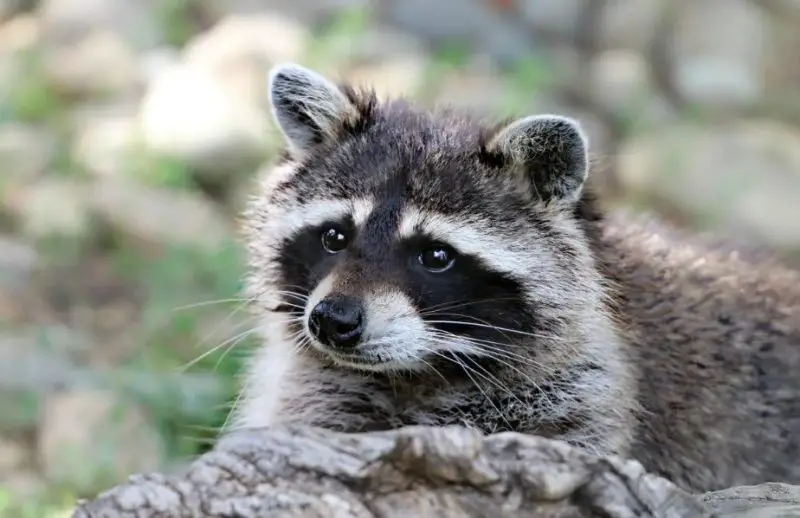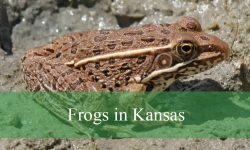If you’ve ever seen a raccoon’s curious little face peeking through the woods or rummaging around trash cans, you may have wondered what it would be like to keep one as a pet. These masked creatures seem intelligent, playful, and oddly adorable—but that leads to an important question: is it legal to own a raccoon in Virginia?
The short answer is no. Raccoons are considered wild animals under Virginia law, and owning one as a pet is strictly prohibited. However, the reasons behind this law—and the exceptions that exist—are worth understanding. This article explains everything you need to know about raccoon ownership laws in Virginia, including the risks, legal penalties, and what to do if you find or rescue one.
Understanding Raccoon Ownership Laws in Virginia

The Role of the Virginia Department of Wildlife Resources
All wildlife in Virginia is regulated by the Virginia Department of Wildlife Resources (DWR). This agency oversees laws related to native and exotic species, ensuring that wild animals are protected and not kept in unsafe or unsuitable environments.
According to Virginia’s wildlife code, it is illegal to take, possess, import, or keep wild animals as pets without proper authorization. Raccoons fall under the category of “native wild animals,” meaning they are not domesticated and cannot legally be kept as private pets.
The official DWR statement is clear:
“It shall be unlawful to take, possess, import, buy, sell, offer for sale, or liberate within the Commonwealth any wild animals unless otherwise specifically permitted by law.”
This means even capturing a raccoon you find injured or abandoned could put you in violation of state law unless you’re a licensed wildlife rehabilitator.
Why Raccoons Are Classified as Wild Animals
Raccoons are highly intelligent and adaptable mammals that play an important role in Virginia’s ecosystems. They are not domesticated and have complex needs that cannot be met in captivity. Their sharp claws, unpredictable behavior, and tendency to bite when frightened make them unsuitable for life as pets.
Moreover, raccoons are common carriers of rabies and parasites, such as raccoon roundworm, which can pose serious health risks to humans and other animals. Because of these dangers, Virginia has placed strict restrictions on keeping them as personal pets.
Can You Get a Permit to Own a Raccoon in Virginia?
Wildlife Permits Explained
Virginia does issue certain wildlife permits, but these are not intended for personal pet ownership. Permits are typically granted to:
- Licensed wildlife rehabilitators
- Zoological parks and educational facilities
- Research institutions
- Animal control or rescue organizations
Private citizens cannot obtain a pet permit for a raccoon, even if the animal was rescued at a young age or appears tame. The purpose of these permits is to support wildlife care, not to allow individuals to keep wild animals as companions.
Misconceptions About “Domesticated” Raccoons
Some websites or social media posts claim that raccoons can be domesticated if raised from infancy. While it’s true that raccoons can become somewhat tolerant of humans, they never truly lose their wild instincts. Even hand-raised raccoons can become aggressive as they reach maturity, especially during mating season.
In Virginia, these so-called “domesticated” raccoons are still legally considered wild animals. There are no exceptions for animals bred in captivity or purchased from out-of-state sellers.
Legal Penalties for Owning a Raccoon in Virginia
What Happens If You’re Caught
If you are found keeping a raccoon as a pet in Virginia, state authorities can confiscate the animal and impose fines or other penalties. Depending on the situation, you could face:
- Animal confiscation (the raccoon will be removed and possibly euthanized)
- Fines and citations under wildlife possession laws
- Misdemeanor charges for illegal possession or importation of wildlife
In some cases, repeat offenders or those who intentionally breed or sell wild animals without permits may face more severe consequences.
Why Enforcement Is So Strict
The penalties may seem harsh, but they serve an important purpose. Virginia’s wildlife regulations aim to protect both animals and humans from harm. When people keep wild animals like raccoons, they unintentionally put themselves, their neighbors, and the ecosystem at risk.
Why You Shouldn’t Keep a Raccoon as a Pet
1. Raccoons Are Wild and Unpredictable
Despite their cute appearance, raccoons have sharp claws and teeth capable of inflicting serious injuries. They are naturally curious and destructive, often tearing apart furniture, walls, and food containers in search of entertainment or food.
Even well-meaning owners have reported that pet raccoons become aggressive once they mature, leading to bites or escapes.
2. High Risk of Disease
Raccoons are primary carriers of rabies, a fatal disease that can spread to humans and pets. They can also transmit other zoonotic illnesses such as leptospirosis, roundworm, and giardiasis. Handling or cleaning up after a raccoon increases your risk of infection.
These health risks are the main reason raccoons cannot be vaccinated or licensed as domestic pets under Virginia law.
3. Specialized Needs and Stress in Captivity
Raccoons are nocturnal animals with complex behavioral needs. In captivity, they often experience high levels of stress, which leads to aggression, self-injury, and other behavioral issues.
Even experienced wildlife handlers struggle to provide suitable care for raccoons, making them extremely difficult to keep in a household environment.
What to Do If You Find a Raccoon in Virginia
Helping Injured or Orphaned Raccoons
If you come across an injured or abandoned raccoon, do not try to care for it yourself. Instead, contact:
- A licensed wildlife rehabilitator
- The Virginia Department of Wildlife Resources (DWR)
- Local animal control authorities
Licensed rehabilitators are trained to care for wild animals safely and legally. They can determine whether the raccoon can be released back into the wild or requires ongoing care.
Dealing with Nuisance Raccoons
Raccoons often raid garbage cans, damage attics, or raid bird feeders. The DWR offers guidance for dealing with nuisance raccoons humanely.
Some effective tips include:
- Secure trash cans with tight-fitting lids
- Seal entry points to attics and crawl spaces
- Remove outdoor pet food at night
- Use motion-activated lights or sprinklers to deter raccoons
Avoid trapping or relocating raccoons yourself, as this may violate local wildlife laws.
Alternatives to Keeping a Pet Raccoon
If you love raccoons but want to stay within the law, there are safe and legal alternatives:
1. Volunteer at a Wildlife Rehabilitation Center
Many wildlife facilities in Virginia welcome volunteers to help with animal care, cleaning, and education. This is a great way to interact with animals legally and responsibly.
2. Adopt a Domestic Pet with Similar Traits
Consider adopting a ferret, cat, or dog instead. These animals share some raccoon-like characteristics—such as curiosity and playfulness—but are fully domesticated and legal to own.
3. Support Conservation Programs
Donate or volunteer with local wildlife organizations that protect Virginia’s native species. By supporting conservation efforts, you help raccoons and other wildlife thrive in their natural habitats.
Frequently Asked Questions About Raccoon Ownership in Virginia
Can I keep a raccoon if it was rescued as a baby?
No. Even if you rescue a baby raccoon, it is still considered a wild animal. Only licensed wildlife rehabilitators can legally care for or keep them.
Are raccoons legal in any other U.S. states?
Yes, but only in a few states with strict permit requirements, such as Florida or Texas. Always check state-specific laws before considering exotic pet ownership.
Can I buy a raccoon from another state and bring it into Virginia?
No. Importing a raccoon into Virginia is illegal, even if you purchased it legally elsewhere. Crossing state lines with wildlife violates both state and federal regulations.
What should I do if someone in Virginia owns a raccoon illegally?
You can report the situation to the Virginia Department of Wildlife Resources or local animal control. Authorities will handle the matter according to state law.
Are there any legal exotic pets in Virginia?
Yes, but only certain species with permits, such as some reptiles, birds, and small mammals. However, all native wildlife—including raccoons—remain off-limits as pets.
Final Thoughts
So, is it legal to own a raccoon in Virginia? The answer is a definite no. Raccoons are wild animals protected by state law, and keeping one as a pet can result in fines, confiscation, and serious health risks.
If you’re drawn to raccoons because of their intelligence and charm, there are many other ways to appreciate them—through wildlife observation, volunteering, or supporting conservation efforts. Respecting these fascinating creatures in their natural environment not only keeps you within the law but also helps maintain the delicate balance of Virginia’s wildlife ecosystem.






